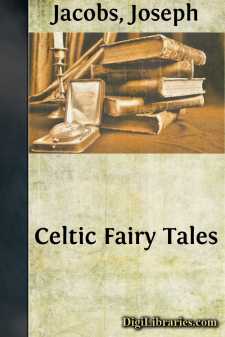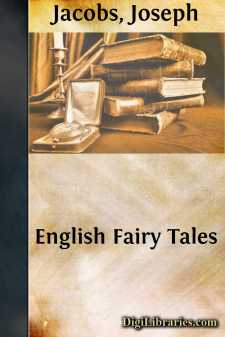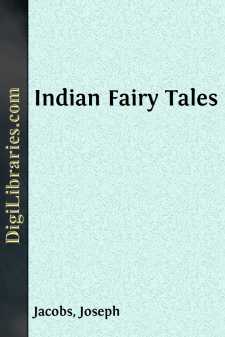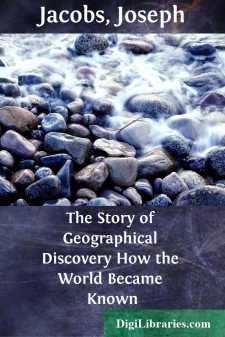Categories
- Antiques & Collectibles 13
- Architecture 36
- Art 48
- Bibles 22
- Biography & Autobiography 813
- Body, Mind & Spirit 142
- Business & Economics 28
- Children's Books 15
- Children's Fiction 12
- Computers 4
- Cooking 94
- Crafts & Hobbies 4
- Drama 346
- Education 46
- Family & Relationships 57
- Fiction 11829
- Games 19
- Gardening 17
- Health & Fitness 34
- History 1377
- House & Home 1
- Humor 147
- Juvenile Fiction 1873
- Juvenile Nonfiction 202
- Language Arts & Disciplines 88
- Law 16
- Literary Collections 686
- Literary Criticism 179
- Mathematics 13
- Medical 41
- Music 40
- Nature 179
- Non-Classifiable 1768
- Performing Arts 7
- Periodicals 1453
- Philosophy 64
- Photography 2
- Poetry 896
- Political Science 203
- Psychology 42
- Reference 154
- Religion 513
- Science 126
- Self-Help 84
- Social Science 81
- Sports & Recreation 34
- Study Aids 3
- Technology & Engineering 59
- Transportation 23
- Travel 463
- True Crime 29
Joseph Jacobs
Joseph Jacobs (1854-1916) was a prominent Australian folklorist, literary critic, and historian best known for his work on English folklore and fairy tales. He is the author of notable collections such as "English Fairy Tales" and "Celtic Fairy Tales," which popularized many traditional stories, including "Jack and the Beanstalk" and "The Three Little Pigs." Jacobs sought to preserve and promote the oral traditions of English-speaking cultures, and his collections became widely influential in children's literature. His scholarly contributions also extended to Jewish history and English folklore studies.
Author's Books:
Sort by:
by:
Joseph Jacobs
PREFACE Last year, in giving the young ones a volume of English Fairy Tales, my difficulty was one of collection. This time, in offering them specimens of the rich folk-fancy of the Celts of these islands, my trouble has rather been one of selection. Ireland began to collect her folk-tales almost as early as any country in Europe, and Croker has found a whole school of successors in Carleton, Griffin,...
more...
by:
Joseph Jacobs
Preface Who says that English folk have no fairy-tales of their own? The present volume contains only a selection out of some 140, of which I have found traces in this country. It is probable that many more exist. A quarter of the tales in this volume, have been collected during the last ten years or so, and some of them have not been hitherto published. Up to 1870 it was equally said of France and of...
more...
by:
Joseph Jacobs
PREFACE From the extreme West of the Indo-European world, we go this year to the extreme East. From the soft rain and green turf of Gaeldom, we seek the garish sun and arid soil of the Hindoo. In the Land of Ire, the belief in fairies, gnomes, ogres and monsters is all but dead; in the Land of Ind it still flourishes in all the vigour of animism. Soils and national characters differ; but fairy tales...
more...
by:
Joseph Jacobs
INTRODUCTION How was the world discovered? That is to say, how did a certain set of men who lived round the Mediterranean Sea, and had acquired the art of recording what each generation had learned, become successively aware of the other parts of the globe? Every part of the earth, so far as we know, has been inhabited by man during the five or six thousand years in which Europeans have been storing up...
more...





